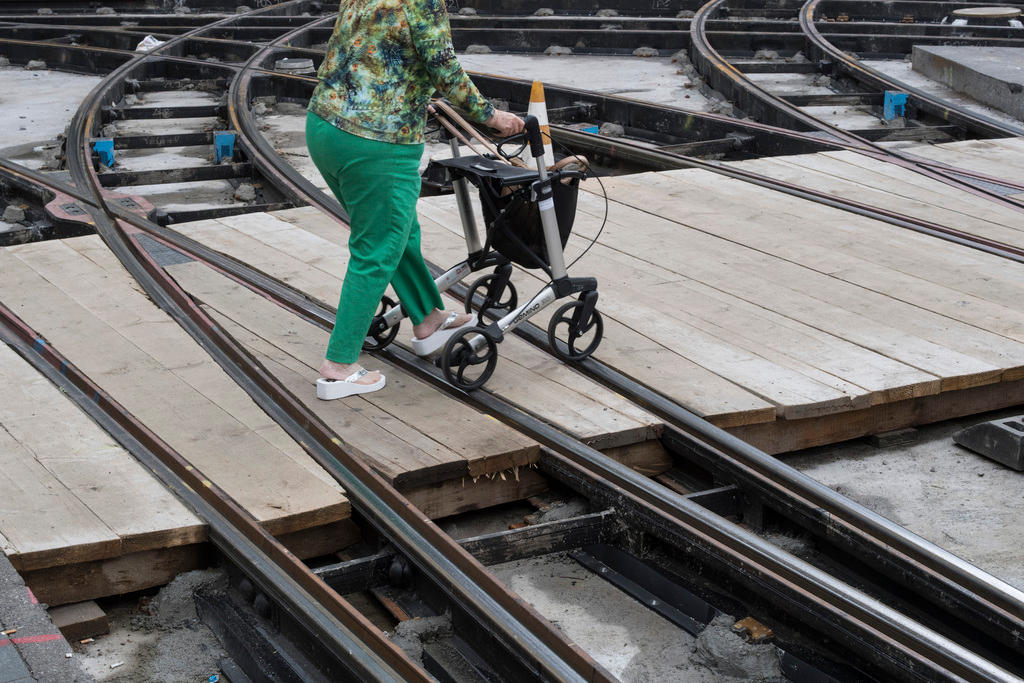
Government hopes for ‘first successful pension reforms’ of the century

In summer 2019 the social partners agreed on a reform of the Swiss occupational pension scheme. The government on Wednesday adopted this compromise unchanged; the ball is now in parliament’s court.
Occupational pensions have been under pressure for a while as a result of rising life expectancy and low interest rates. Following the rejection by voters of the pension reform in September 2017, the government tried again, focusing on the second pillar (based on occupational pension plans and accident insurance).

More
Explainer: the three Swiss pension pillars
The reform of the occupational pension scheme is intended to secure the pension level, strengthen financing and improve the protection of part-time employees and thus especially women, Interior Minister Alain Berset said at a press conference on Wednesday. He said he hoped it would be the first successful pension reform in the 21st century.
The core of the social partner compromise is a reduction in pensions, which is cushioned by various compensatory measures. The minimum conversion rate at which the saved capital is converted into a pension is to be reduced from 6.8% to 6%. This would mean that 12% of the pension would be lost at a stroke.
A reduction of the conversion rate is inevitable – “nobody denies that”, Berset said. However, despite this widely recognised necessity a reduction of the conversion rate has failed several times at the ballot box.
Parliament should now “do everything it can to find a solution”, Berset said. The government was keen to work with the Senate and the House of Representatives on this “complicated business”, he added. However, Berset warned that the bill should not degenerate into a “self-service shop”.

More
Occupational pensions, a hidden Swiss treasure

In compliance with the JTI standards
More: SWI swissinfo.ch certified by the Journalism Trust Initiative




























You can find an overview of ongoing debates with our journalists here . Please join us!
If you want to start a conversation about a topic raised in this article or want to report factual errors, email us at english@swissinfo.ch.